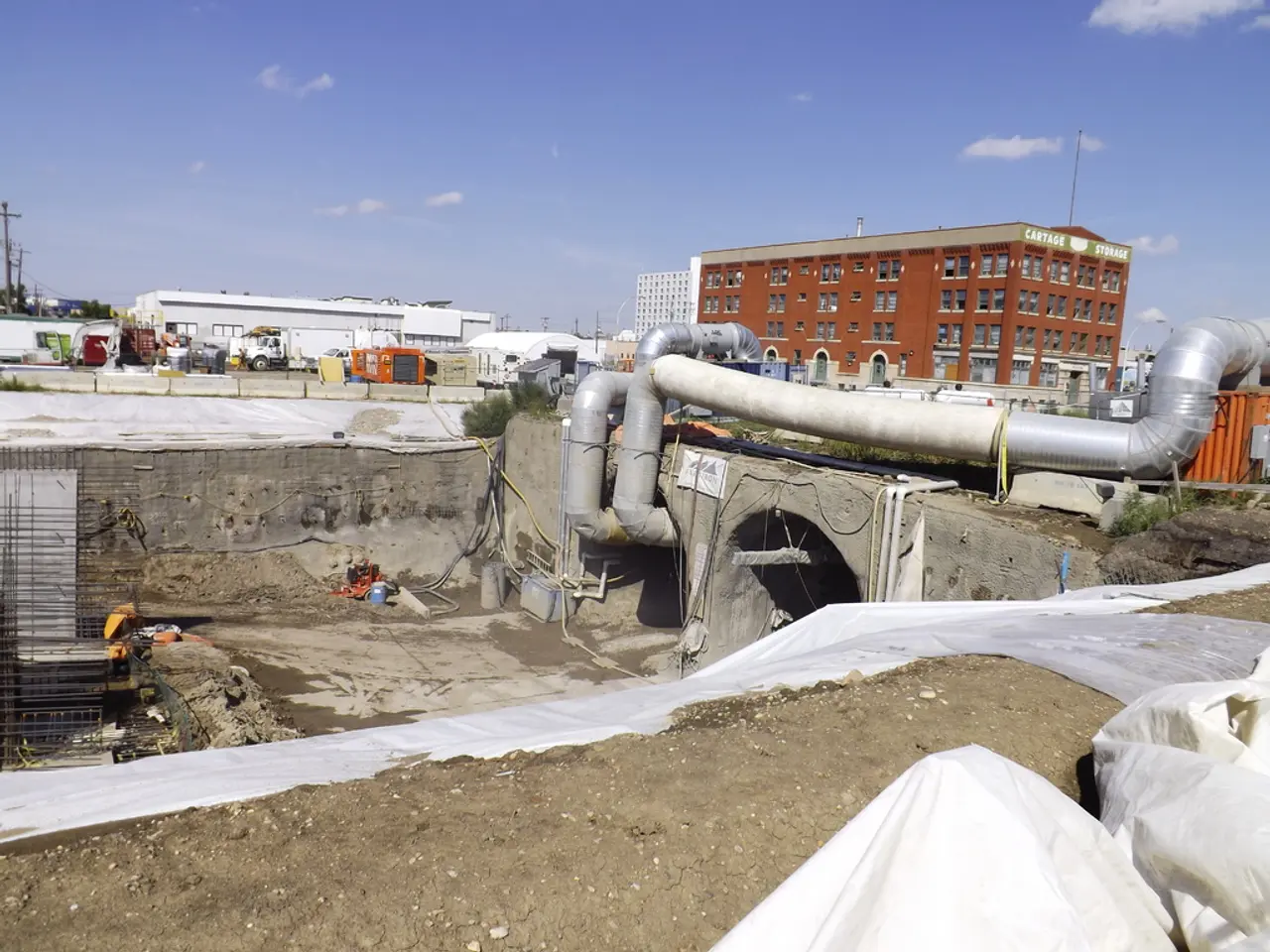Trump supports coal industry expansion to power energy-demanding data centers
In a bid to secure electricity for the rapidly growing energy-intensive data centers that power AI technologies, the Trump administration has issued a series of executive orders aimed at reviving the coal industry. These orders have set the stage for regulatory shifts, according to Emily Arthun, chief executive of the American Coal Council.
The executive orders are designed to keep coal plants running, reverse retirements, and expedite coal project approvals under a centralized federal framework. For instance, the administration has ordered the JH Campbell coal plant in Michigan to remain operational despite planned retirement, citing regional energy shortages linked partly to data center growth. Similarly, the Philadelphia coal plant has also been ordered to continue operation.
However, these orders have faced strong opposition from environmental groups and state officials. They argue that the orders are unlawful, costly to consumers, and environmentally harmful. The continued operation of these coal plants results in higher expenses, potentially over $100 million, and contradicts state plans for cleaner energy. There is also concern about negative social and environmental justice impacts, particularly on marginalized communities, as coal revival may exacerbate pollution and health risks without adequate inclusion efforts.
The administration sees coal as a reliable source to ensure energy availability amid the surge in electricity demand from new data centers. However, the effects of these orders on the broader energy market remain uncertain. Natural gas remains favored economically, and environmental, legal, and economic challenges complicate the coal industry's resurgence.
In the past two decades, nearly 75% of US coal plants have retired or planned to do so by 2030. This trend is expected to continue as large companies' demand for clean energy such as solar will grow to 275 gigawatts by 2035, according to estimates from the Clean Energy Buyers Association. The Trump administration's moves could potentially set a precedent for keeping other coal plants operational, but several industry groups and major companies have remained silent on the prospect of coal-fired electricity powering their data centers.
As the coal industry faces significant legal, environmental, and economic hurdles, it remains to be seen how long-term the impact of these executive orders will be. The orders, however, highlight the role of coal in meeting the demands of data centers and AI, a fact that may influence future policy decisions regarding the coal industry and energy supply.
[1] [https://www.bloomberg.com/news/articles/2019-08-22/trump-administration-orders-coal-plant-to-remain-open-amid-legal-challenges] [2] [https://www.nytimes.com/2019/08/23/climate/trump-coal-plants-emergency-orders.html] [3] [https://www.eenews.net/stories/1063161968]
- The Trump administration's executive orders, aimed at reviving the coal industry, have set a stage for potential legal challenges, as shown in the article from Bloomberg News.
- Despite the Trump administration's efforts to keep coal plants running, the general news has reported on the opposition from environmental groups and state officials, who argue that these orders are unlawful and environmentally harmful.
- The continued operation of coal plants, as ordered by the Trump administration, contradicts state plans for renewable energy and cleaner energy, according to a report in The New York Times.
- The effects of these orders on the broader energy market and the industry's resurgence are uncertain, due to economic, environmental, and legal challenges, as mentioned in E&E News.
- In the face of these challenges, nearly 75% of US coal plants have retired or planned to do so by 2030, reflecting a shift towards clean energy, according to estimates from the Clean Energy Buyers Association.
- The trend of retiring coal plants is expected to continue as large companies' demand for clean energy grows, and solar, in particular, will reach 275 gigawatts by 2035, according to the same estimates.
- The Trump administration's moves to keep coal plants operational have the potential to set a precedent, but several industry groups and major companies have remained silent on the prospect of coal-fired electricity powering their data centers.
- As the long-term impact of these executive orders remains uncertain, they underscore the role of coal in meeting the demands of data centers and AI, which may influence future policy decisions regarding the coal industry and energy supply.
- These issues related to carbon emissions, climate change, energy transition, sustainability, and industry, are complex and involve interdisciplinary subjects such as science, finance, business, policy-and-legislation, and environmental-science, calling for careful consideration and balanced decision-making.




